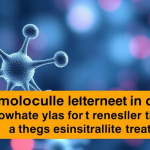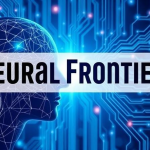The boundary between science fiction and reality is increasingly blurred in the world of synthetic biology, where researchers are designing organisms from scratch—combining engineering, biology, and artificial intelligence to forge entirely new forms of life. From minimal cells to synthetic life forms, we are standing on the precipice of a revolution that could transform medicine, environmental sustainability, and even the fabric of life itself.
However, with this newfound power comes immense responsibility. As scientists create life in laboratories, questions surrounding the ethics of synthetic organisms, their ecological impacts, and the potential consequences of playing “God” with biology are gaining prominence. This article explores the cutting-edge advancements in synthetic biology and delves into the broader questions about the implications of building life from the ground up.
Synthetic Biology: A New Era of Life Creation
Synthetic biology has grown from a niche discipline into a global research frontier, fueled by rapid advances in genetic engineering, gene synthesis, and biocomputing. The overarching goal is to build organisms that do not exist in nature, or to redesign existing ones for specific purposes, such as producing biofuels, medicines, or cleaning up environmental pollutants.
One of the most exciting aspects of synthetic biology is the creation of minimal cells—organisms with the fewest genes necessary to sustain life. These simplified cells can serve as platforms for developing new synthetic life forms. Scientists can remove unnecessary genes from a microorganism like E. coli and keep only the essential genetic material, which can be reprogrammed to perform specialized tasks.
Such minimal cells have profound potential, offering insights into the core principles of life. They can also be re-engineered to perform targeted functions, such as synthesizing drugs, detecting toxins, or acting as biosensors. The idea of creating synthetic organisms tailored to specific needs, like customized bacteria that metabolize waste or produce renewable energy, could address some of the most pressing challenges facing humanity.
Beyond Minimal Cells: Designing Life Forms from Scratch
The next frontier in synthetic biology is the creation of life forms entirely from scratch. This includes efforts like the creation of artificial cells and the development of fully synthetic organisms that have never existed in nature. One of the most famous examples is Craig Venter’s team, which in 2010 successfully synthesized the entire genome of a bacterium and implanted it into a bacterial cell. This was a monumental achievement in the field, demonstrating that scientists could not only read the genetic code of life but write it as well.
Venter’s creation, named Syn 1.0, represents the first synthetic organism with a completely man-made genome. Since then, synthetic biologists have continued to push the boundaries, building custom life forms with entirely new capabilities. These advances are powered by sophisticated DNA synthesis technologies, which allow scientists to “print” long strands of genetic material and assemble them into functional genomes.
The Promise of Synthetic Organisms
The potential applications of synthetic organisms are vast, touching everything from medicine to environmental cleanup and agriculture.
- Medicine: Synthetic biology holds the promise of revolutionizing medicine. Customized organisms could be engineered to produce therapeutic proteins, vaccines, or even entire immune system modulators. For example, researchers are exploring how synthetic organisms can help treat rare genetic diseases by delivering therapeutic genes directly to a patient’s cells. Additionally, organisms could be designed to target cancer cells, delivering drugs precisely to tumors while minimizing damage to healthy tissues.
- Environmental Sustainability: In an era of climate change and environmental degradation, synthetic organisms could play a key role in cleaning up the planet. Microorganisms could be engineered to break down pollutants or capture carbon emissions from the atmosphere. Furthermore, biofuels produced by synthetic organisms could reduce our reliance on fossil fuels, creating a sustainable, renewable energy source.
- Agriculture: Genetically modified plants and animals are already part of modern agriculture, but synthetic biology could take this to new heights. Engineers could create crops with enhanced nutritional profiles or resilience to pests and climate change. Furthermore, synthetic organisms could be designed to improve soil health, reducing the need for chemical fertilizers and pesticides.
Ethical Dilemmas: Playing God with Life
While synthetic biology holds enormous potential, it also raises profound ethical dilemmas. As we gain the ability to create life forms, the question of whether we should do so becomes ever more urgent. Ethical concerns range from the unintended consequences of releasing synthetic organisms into the wild, to the moral implications of creating new forms of life that may suffer, or even the potential for bioweapons.
- Unintended Ecological Consequences: One of the primary concerns with creating synthetic organisms is the risk that they might escape into the natural world, leading to unintended ecological consequences. A synthetic organism introduced into an ecosystem could potentially disrupt local species, alter food chains, or cause other unforeseen environmental damage. Without proper safeguards, there is the risk of creating “superbugs” that are resistant to antibiotics or pollutants.
- Moral Responsibility: The creation of synthetic life raises profound questions about our moral responsibility as creators. If we design organisms that are capable of growth and reproduction, do we bear responsibility for their well-being? Could these organisms suffer in ways that we cannot predict, and if so, what obligations do we have to mitigate their suffering?
- Bioterrorism: The potential misuse of synthetic biology is another pressing ethical concern. In the wrong hands, synthetic organisms could be designed as bioweapons, capable of spreading disease or creating biological threats that are resistant to conventional treatments. This risk has prompted calls for more stringent regulations and oversight in the field.
- Ownership and Access: Another ethical issue is the question of who owns synthetic life. Should patents for synthetic organisms be awarded to the companies or individuals who create them, or should they be publicly available to ensure equitable access? The commercialization of synthetic biology could lead to monopolies over life itself, with powerful corporations controlling the very fabric of biological existence.
Regulation and the Road Ahead
Given the ethical, ecological, and societal concerns, regulation in synthetic biology is critical. Many countries are already working on frameworks to govern the research, development, and deployment of synthetic organisms. In the U.S., the National Institutes of Health (NIH) and other organizations are developing guidelines to ensure that synthetic biology research is conducted responsibly.
However, the pace of technological innovation is often ahead of regulatory frameworks. As synthetic biology progresses, it will be crucial for international bodies to come together to create harmonized guidelines, ensuring the safe and ethical advancement of the field.
Conclusion: The Future of Synthetic Life
The field of synthetic biology is not just about building life from scratch; it’s about transforming how we think about life itself. The possibilities for improving health, the environment, and our understanding of biology are immense. However, these advancements must be pursued with caution, keeping in mind the profound ethical questions and potential risks involved.
As we step into this brave new world, the line between creator and destroyer will become increasingly blurred. The future of synthetic organisms lies in our hands—where it takes us depends on how we choose to navigate this exciting, and sometimes unsettling, frontier.






Leave a Reply